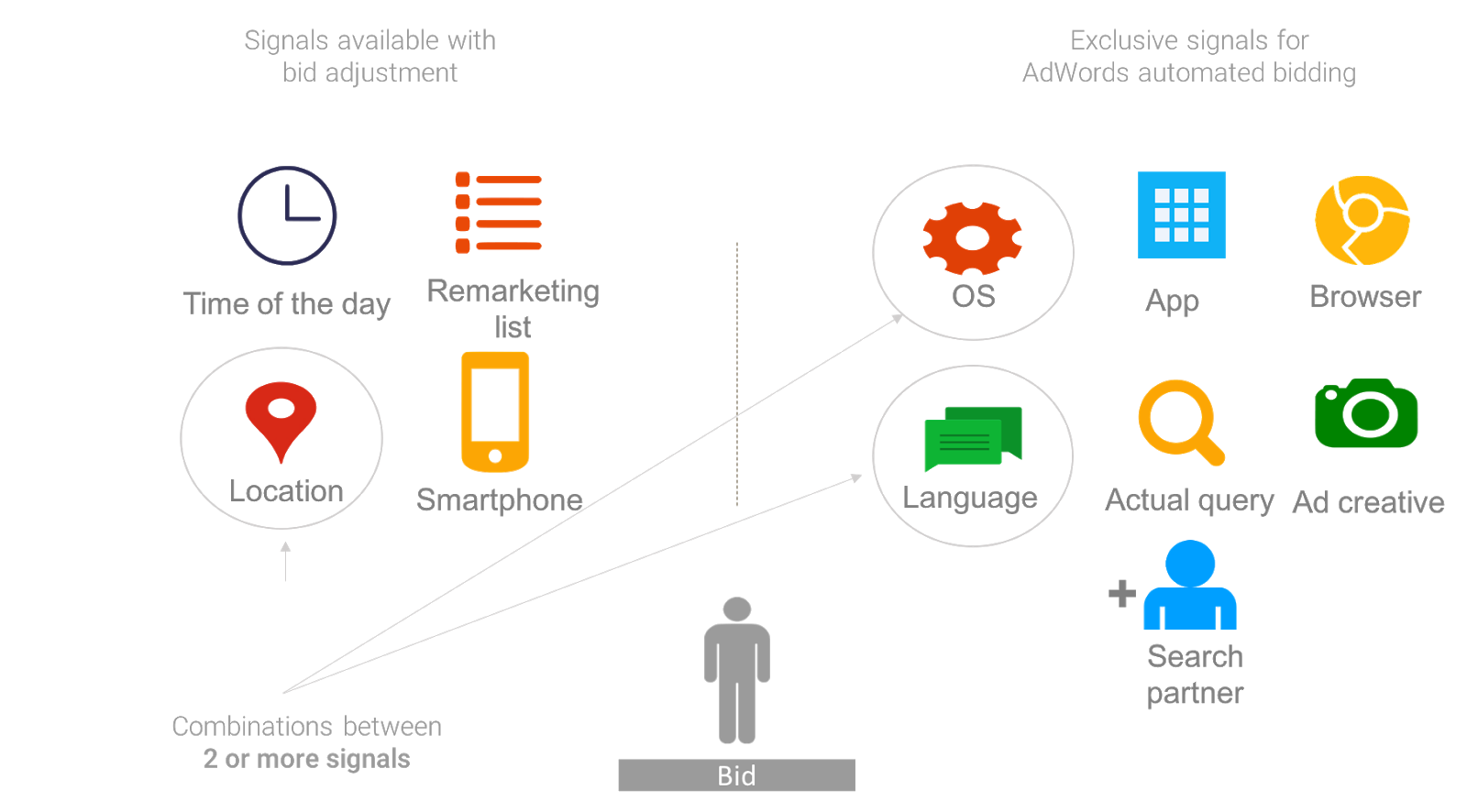The State of Smart Bidding in Google Ads

As the number and sophistication of smart bidding strategies available in Google Ads continues to grow, the average pay-per-click (PPC) specialist is grossly unprepared to understand, test, and apply the strategies most appropriate to their situation.
The inefficiencies created by applying the wrong bidding strategy to a campaign is costly for the advertiser and is one of the effects driving a general average cost per click (Avg. CPC) inflation in the platform this year. This Avg. CPC inflation, along with increased click-through rates (resulting from “optimize” ad rotation and new ad formats, for example) are creating a “lollapalooza” effect that is driving more click and spend volume than ever before.
Why Choose Smart Bidding Over Manual Bidding?
So why smart bid at all?
Effective bidding in any pay-per-click advertising context is a difficult task. Any person who is manually bidding, when asked why they’ve raised or lowered their bid to the extent that they did, will likely reply with nothing more than a blank stare.
Understanding, then, is beyond the grasp of all but the most practiced. Even that select audience in our industry (smartly) rely on scripts and other aids in order to enhance their chances of sound decision making in this area.

At the time of this writing, there are simply too many variables involved in setting maximum CPC bids at scale to be able to do it accurately and efficiently.
In 2016, I wrote a methodology for manually calculating device bid adjustments. Even as that was being put together, it was clear that the method would soon become inadequate. Beyond the device bid adjustment are many other segments acting upon the max. CPC bid for a keyword, such as location, audience, and time.
Often, advertisers are unaware of the net effects (in either direction) of all of these adjustments. Multiply that issue by the number of keywords within the account and you can start to see the scope of the problem.
The Advantages of Smart Bidding Strategies
The answer that “it’s too hard to do ourselves” is about as satisfying as the “everyone else is doing it” argument. So what other reasons does an advertiser have, even when taking into account the frustratingly opaque nature of the algorithms that produce the bidding decisions?

There are numerous advantages to utilizing smart bidding strategies. These are the three I find most convincing:
- Speed – Bids are calculated in real time for each auction, not based solely on the past performance (as in manual bidding)
- Information – Bids take into account user signals and first-party Google data in order to calculate conversion probability
- Scope – Bids can account for all of the factors acting on the maximum CPC bid simultaneously, as well as the net effects the adjustments have
The impact of these three advantages alone make it worthwhile to adopt, lest you fall behind. The task at hand is to understand the smart bidding strategies to the best of your ability and undertake various tests to determine which ones will work best in your campaigns.
Move or Be Swept Away

There are additional reasons to adopt smart bidding beyond the three listed above.
I wish it wasn’t the case, but I predict that failing to adopt over the mid-to-long term will be very painful for advertisers.
If only a handful of advertisers adopted the latest features, they wouldn’t be as important to adopt. However, there is a powerful alignment of incentives happening from the top all the way down.
Google Partner agencies are now being graded in part on how well they are adopting the latest best practices, so they are incentivized to adopt in order to maintain high visibility and support.
Google representatives are being held accountable and compensated based on the adoption rates among their book of business, and I predict that Google executives will be pleased with record-level ad revenues and profits over the next few quarters.
Advertiser Incentive
Even the advertisers themselves (clients of agencies and in-house folks) have incentive to change due to the effects in play.
The greatest danger that I have observed so far is failing to keep pace with Max. CPC bids when employing manual bidding strategies against competitors using smart bidding. I don’t mean actual CPC paid (Avg. CPC), but the actual bid in the auction that influences ad rank.
As I mentioned earlier, Avg. CPC inflation is a real thing related to this trend, but the Max. CPC issue is of greater importance because failing to compete in auctions means you effectively get less opportunities to convert a user into a customer.
In practical terms, this means you are going to either drop out of auctions altogether (which is not reported on) or lose impression share. Neither are good outcomes.
I believe that the reason this disparity happens is that the algorithms are recognizing asymmetric risk/reward search terms and bidding disproportionately highly when it does.
The result is that it will continue to be good to be on top.
As both bids and actual cost per clicks rise, competitive search engine results pages (SERPs) will likely de-stratify further, leaving only a few top advertisers who can afford to compete there and still maintain profitability.
Too Long, Didn’t Read
Begin testing and adopting smart bidding as soon as you can.
There are two reasons to do so:
- everyone’s arm is being twisted and being stubborn will be more costly than getting on board
- smart bidding strategies may actually produce results
To make the best use of smart bidding, study with extreme care and choose the strategy that best applies to your situation. Be sure to configure it in such a way that it has a chance to actually work.
Hopefully, you are now decided that it is not a matter of “if,” only a matter of “how.” If that is your position, stay tuned for future posts, which will divulge the mechanics of various smart bidding strategies and improve your chances for success.



















